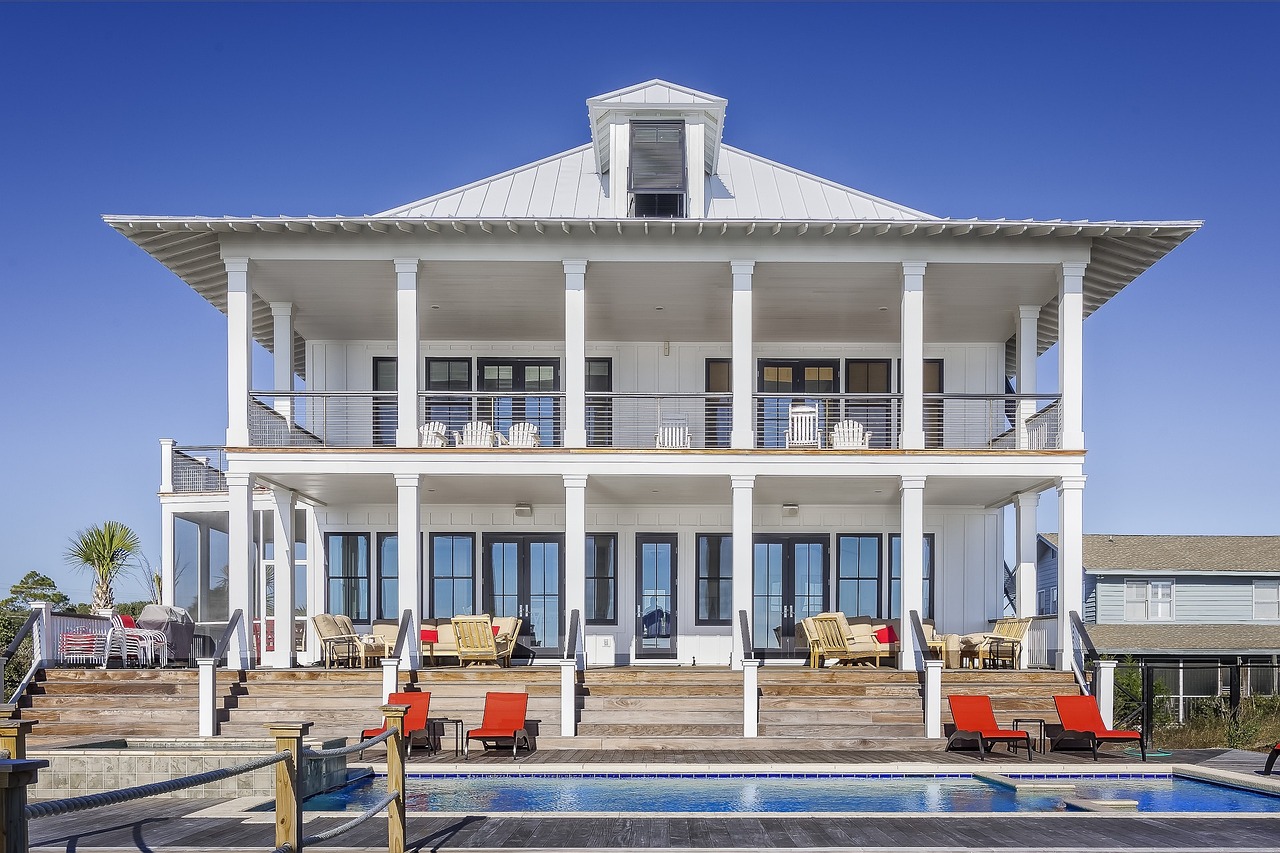This is a popular question, and one that needs to be answered (because the rumors just aren’t true!).
The short answer to the question is: No, turnkey rental properties are not overpriced.
To help explain, I’m going to break it down into two things to understand:
- Overpriced versus costing more
- Turnkey pricing versus other strategies and market value
I’m going to explain each of these as they relate to turnkey pricing, and then I’m going to tell you two sure-fire ways to safeguard you from overpaying for a turnkey.
Overpriced versus costing more
There’s a big difference in something being overpriced and something costing more than other options.
Think about it this way: what is something worth?
Let’s use a shoe analogy. Not that I know anything about shoes, but I do know Jimmy Choo shoes are very expensive. Let’s say the Jimmy Choos you’re thinking of buying retail for $1000 and the ones in front of you are listed for $1500. Are you overpaying for them then? Yes, because their value is $1000, so you’re overpaying by $500. But if you pay the retail value of $1000, are you overpaying just because the Walmart brand equivalent of that shoe is so much cheaper? No. You’re paying more than you would for the Walmart brand, but you’re not overpaying for Jimmy Choos. Now if you were paying a Jimmy Choo price for a Walmart brand equivalent shoe, then you’d absolutely be overpaying for that shoe.
Apply that example to real estate. In residential real estate, the value of a property is called “market value”. Just like the Jimmy Choos, if you’re paying market value for a property, you’re paying what it’s worth and not more than that. If you’re paying what something is worth, you’re not overpaying. And if you buy a nicer property which costs more than a cheaper property, that doesn’t mean you’re overpaying just because you’re spending more money than the cheap version would cost you.
As long as you’re paying market value for a turnkey rental property, you’re not overpaying for it. You’re only overpaying for it if the appraisal says the market value of the property is less than what you’re buying it for.
Turnkey pricing versus other strategies
Why people have this idea in their head that turnkeys are overpriced likely comes from the notion that real estate investors are always supposed to buy properties at a discount. Since turnkeys aren’t discounted, people assume they’re overpaying.
With a turnkey rental property, you’re getting a fully rehabbed property with all major systems new or replaced, via someone else doing all the work for you, instead of a distressed shack that you will do all the work yourself on. Of course it’s going to cost more! Wouldn’t you expect a new shiny bicycle to cost more than one that’s been sitting in a garage that needs repairs?
People mistaken not getting something at a discount with overpaying for a property. Sure, you’re going to pay more for a turnkey than you would most other properties, but that doesn’t mean you’re overpaying; it means you’re getting something where more of the work has been done for you.
If you’re trying to decide whether you should buy value-add deals or turnkeys, watch Should You Invest in Rehab Rental Properties? | BRRRR Properties vs. Turnkey Rentals.
It might seem like the two things I broke down are saying the same thing. They’re very similar, and they’re driving towards the same point, but here’s what they both tell you:
- What constitutes overpaying (i.e. paying over market value)
- It’s not an apples-to-apples comparison between turnkeys and value-add deals
With all of that said, hopefully now you can make your own informed decision about whether you think turnkeys are overpriced or not.
I wholeheartedly believe turnkeys, as a strategy, are not overpriced. However, there have been instances where turnkey providers have prompted investors to overpay! Meaning, the investor pays more than the market value of a property.
In no way do I support anyone paying more than market value, i.e. overpaying, for a turnkey. So, how can you ensure you aren’t overpaying?
How to know if you’re overpaying
There are two ways that you can know if you’re overpaying for a turnkey rental property. One way is more formal than the other, but in my experience, they both work.
- Get an appraisal
If you’re purchasing your property using a mortgage, your lender is going to order an appraisal to be done on the property to ensure it’s worth what the seller is asking for it. If you’re paying cash, you can order your own appraisal (and I recommend it). In theory, whatever the appraisal says, that’s the market value of your property.
The appraisal is very black & white:
- If you’re paying more than that amount, you’re overpaying for the property.
- If you’re paying less than that market value, you’re getting it at a discount and will have immediate equity available in the property.
- If you’re paying the same amount the appraisal comes in at, it means you’re paying right at market value for it.
Where appraisals get sticky is in the fact that appraisals can be extremely inconsistent. One appraiser may value a property at one amount, while another appraiser values it at a completely different amount. It can sometimes feel like appraisals can vary with a simple change in wind direction. So how do you know the appraisal amount is accurate, so you know whether you’re over- or under-paying for the property? Well, you don’t really. But if you compare the appraisal amount with, say, a market value determined by a real estate agent who’s run comps for it against other properties, you can feel secure knowing you’re at least in the ballpark. The other option to help solidify the appraisal amount of the property, and to know what your property is really worth is…
- Shop around enough
This is the less formal way of knowing a property’s value. If you shop around investment properties in a particular market enough, you’re going to get a really good sense of what you get for what prices.
It’s just like shopping for ice cream. Let’s say you’re a huge rocky road ice cream fan. In fact, you’re a rocky road connoisseur. In a year’s time, you buy rocky road from every store around you, and you try every brand.
The first comparison for pricing you can make is when different stores sell the same brand of rocky road. What is the difference in price for the same carton of ice cream at the different stores? Whichever one is cheaper, that’s the best deal. And you know it’s the cheapest because you’ve looked at the same carton at other stores.
The second comparison you make is between brands of ice cream. Some brands of rocky road are going to taste better than other brands. Obviously, you’re willing to pay a little more for the best brand. But how do you know what a good price for that brand is? Well, you’ve seen cheap brands and expensive brands both, so how does it compare in price to those?
Having tried and shopped for all the rocky road ice creams you can find, you’re going to be very clear on what’s a good deal for rocky road. You’ll be able to pinpoint the best combination of bang for the buck—what’s the best price + quality combination?
Same thing with properties. The more you shop, the more clear you’ll be on what’s a good deal.
One last example for this one. A few years ago I wanted to buy an old Nissan Xterra car, circa 2002-2004. These were very old cars by the time I wanted one. I shopped for six months on Craigslist and Auto Trader, spanning most of the United States, looking for one in good shape. By the time I finally found the one I wanted, I knew that its $6500 price tag was a fantastic deal for what I was looking for. BUT, the Kelly Blue Book value only had it listed at $3500, which in theory was its market value. Despite what the Blue Book value said, because I had shopped for so long and through so many old Xterras, I knew I was getting a great deal. Anything listed in the $3500 range was totally beat up and nothing I’d feel good driving. I also knew that $6500 was a great deal because I had seen similar condition Xterras in the $9000 range. I knew the value of my Xterra because I had shopped around for so long.
No, you’re not overpaying for a turnkey rental property… as long as you’re paying market value or less for it. You can’t compare turnkeys to distressed properties and trick yourself into the idea that you’re overpaying because you’re not paying under market value. With those discounted prices come trade-offs with the properties, which makes it not a fair comparison to turnkeys.

